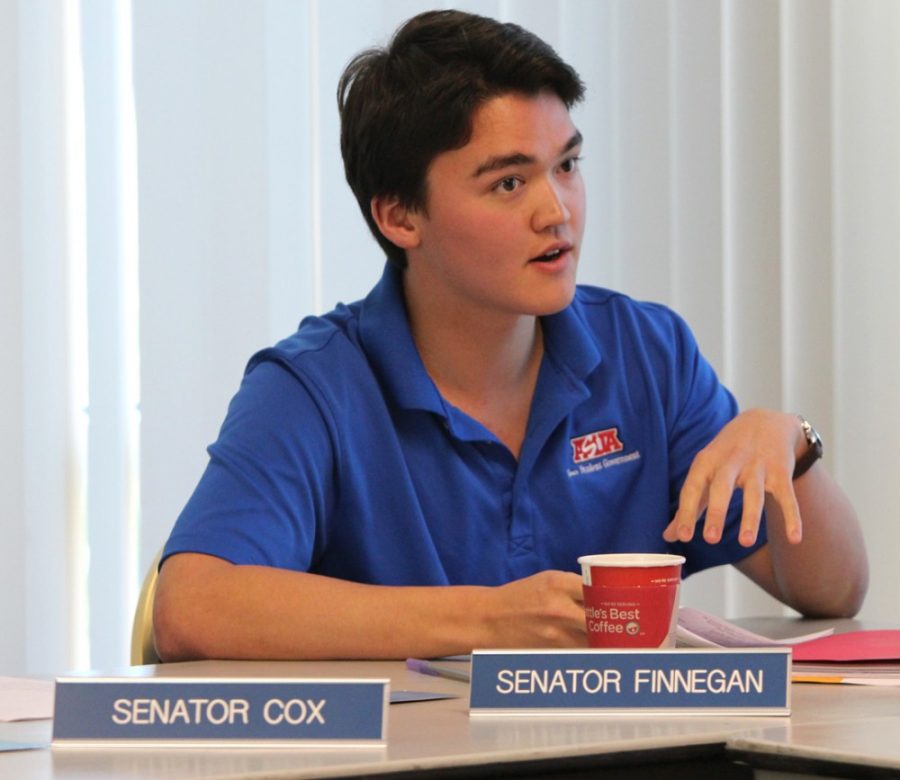Proposed senate reforms raised questions at Thursday’s ASUA Senate meeting.
Associated Students of the University of Arizona Sen. Michael Finnegan, the main curator of the reforms, said the major changes include the addition of one representative of each UA college and three at-large positions -— which do not represent specific colleges — to the senate in order to have broader representation of student views and opinions.
“This directly addresses the representation problems that we have within senate right now,” Sen. Joe Zanoni said. “To be honest, 10 of us cannot fully represent all the students here at the UA. This reform directly addresses are diversity issue within senate. This would open it up to all the colleges and vastly improve our diversity, so we can just answer directly to the students.”
According to Finnegan, if a college fails to present a candidate, one would be chosen from that college’s council. Finnegan said this is because student government still wants representation from that college. However, if there is no council or group from that college for a candidate to be chosen, the position will then turn into an at-large position. According to Finnegan, similar reforms have been implemented at Arizona State University.
Sen. Ellen Dunn asked whether colleges who do not have student leadership would have an opportunity or the time to put one together.
Finnegan said colleges without student leadership positions would have to be a recognized club, and if not, they would have to go through the regular senate process to be recognized.
“This is all very tentative. … The main thing we want to do is increase representation, per college, per student,” Finnegan said.
Sen. Brooke Serack asked if the senate could, instead of having representation from each of the four graduate schools, create two at-large overall graduate positions.
“We want to give them an equal opportunity to have a voice as well,” Finnegan said. “ASUA represents undergraduate and graduate students. We wanted to make sure we can hear their voice more effectively than we can now.“
Serack agreed with this, stating that the idea will undoubtedly need to be developed over time, but the amendment helps the student government’s representation problem at present.
“I think this is a really good idea,” Serack said. “I think it will definitely make us more transparent to the student body.”
Sen. Jack Emery noted an issue that hadn’t yet been addressed: As of now, the reform proposes 20 senate seats.
He explained that last year, there were 20 people that made it to the general election, meaning some colleges may be underrepresented, while others may make up a nominal portion of the new senate seats.
In the first couple years of these reforms, Emery said he foresees the availability of at-large seats becoming so broad that the majority, if not all, at-large candidates, will be elected by default of this policy.
“I think [Finnegan] did a really good job on this,” Sen. Joshua Wexler said. “The more I hear about it, the more I like it.”
Sen. Elena Gold asked about how these reforms will affect workload and committees.
“While all these concerns are pretty valid, we really need to focus on the changes being made to this document,” Emery said. “A lot of these changes don’t need to be made to the constriction.”
_______________
Follow Chastity Laskey on Twitter.








